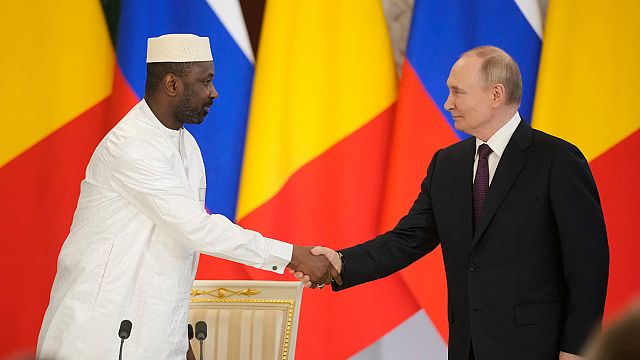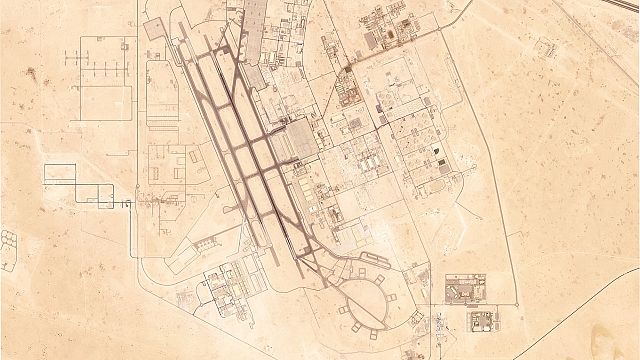Supreme Court Lets Trump Deport Migrants to Countries Other Than Their Own


The ruling applies immediately to a group of men the government has sought to send to South Sudan. The Supreme Court on Monday allowed the Trump administration to deport migrants to countries other than their own, pausing a federal judge’s ruling that said they must first be given a chance to show that they would face the risk of torture and potentially clearing the way for the administration to send men held at an American military base in Djibouti to South Sudan. The court’s order gave no reasons and said the judge’s ruling would remain paused while the government pursues an appeal and, after that, until the Supreme Court acts. The court’s three liberal members issued a lengthy dissent. The order was the latest in a series of rulings related to immigration decided by the justices in summary fashion on what critics call the court’s shadow docket. Two allowed the administration to lift protections for hundreds of thousands of people who had been granted temporary protected status or humanitarian parole. But others insisted on due process — notice and an opportunity to be heard — for migrants before they are deported. Monday’s ruling moved in a different direction, refusing to allow migrants to make the case that they would face torture if sent to places with which they have no connection. The absence of any reasoning made it impossible to understand the majority’s thinking. Tricia McLaughlin, a spokeswoman for the Department of Homeland Security, called the ruling “a victory for the safety and security of the American people.” “D.H.S. can now execute its lawful authority and remove illegal aliens to a country willing to accept them,” she said in a statement. “Fire up the deportation planes.” Leila Kang, a lawyer with Northwest Immigrant Rights Project, which represents migrants in the case, said the court’s order would have devastating consequences. “The Supreme Court’s ruling leaves thousands of people vulnerable to deportation to third countries where they face torture or death, even if the deportations are clearly unlawful,” she said. In dissent from Monday’s order, Justice Sonia Sotomayor, joined by Justices Elena Kagan and Ketanji Brown Jackson, said the majority had ignored a federal law that requires due process. “Congress expressly provided noncitizens with the right not to be removed to a country where they are likely to be tortured or killed,” Justice Sotomayor wrote, adding that the Supreme Court has long held that people must be given a chance to explain why they should not face “grievous loss.” “Being deprived of the right not to be deported to a country likely to torture or kill you plainly counts” as such a loss, she added. “Thus, plaintiffs have a right to be heard.” Justice Sotomayor wrote that the majority had endorsed lawlessness. “The government has made clear in word and deed that it feels itself unconstrained by law, free to deport anyone anywhere without notice or an opportunity to be heard,” she wrote. This case arose from a trial judge’s order that applies to migrants cleared for removal from the United States whom the administration seeks to deport to third countries — ones where they do not hold citizenship and where they may have no connection. The judge said such migrants were entitled to due process, meaning notice of where they were going and the chance to argue that they were at risk of harm if sent there. Though the judge’s order applied to many migrants, it captured public attention in May when the government loaded eight men onto a plane said to be headed to South Sudan, a violence-plagued African country that most of them had never set foot in. Their flight landed instead in the East African nation of Djibouti, where there is an American military base, and they have been held there ever since. The judge, Brian E. Murphy of the U.S. District Court in Boston, ruled that the men must be given access to lawyers and a chance to challenge the government’s plan to send them to South Sudan. There were eight deportees aboard the flight to Djibouti. One is South Sudanese, and the government has said that another will be sent to Myanmar, his home country, leaving the six others in limbo. All eight have been convicted of violent crimes. Government officials objected but said they would comply with the ruling. The solicitor general, D. John Sauer, told the justices in a brief filed on June 5 that as a result, Immigration and Customs Enforcement officers had “been forced to establish a makeshift detention facility for dangerous criminals at a military base in Djibouti.” He wrote that the men were being held in a converted conference room under constant guard by ICE personnel, who faced health risks and the threat of rocket attack from Yemen. The situation, he wrote, was “disrupting the base’s operations, consuming critical resources intended for service members and harming national security.” Lawyers for the men said they were still in Djibouti on Monday. Soon after the Supreme Court ruled, they filed an emergency motion with Judge Murphy asking him to continue blocking the deportations. In a brief order Monday night, the judge denied the motion as unnecessary. He noted that he had issued a separate ruling last month, different from the one the Supreme Court had paused, protecting the men in Djibouti from immediate removal. Lawyers for the men and others facing deportation to third countries said Trump administration officials “have repeatedly sought to remove people as a punitive measure, to some of the most dangerous places on the planet, and with only hours’ notice.” Mr. Sauer countered that Judge Murphy had thwarted “the government’s ability to remove some of the worst of the worst illegal aliens.” Mr. Sauer explained that the home countries of migrants convicted of violent crimes often refuse to allow them to be returned, making their deportations especially challenging. “As a result, criminal aliens are often allowed to stay in the United States for years on end, victimizing law-abiding Americans in the meantime,” he wrote. The migrants’ brief said that a lawyer in the solicitor general’s office had acknowledged that removals to third countries required due process at an oral argument in March in a separate case at the Supreme Court. “We would have to give the person notice of the third country and give them the opportunity to raise a reasonable fear of torture or persecution in that third country,” the lawyer, Ephraim McDowell, said. Judge Murphy had ordered that migrants must have at least 10 days to raise claims that they might be tortured and another 15 days to contest adverse findings. Mr. Sauer argued that the judge was interfering in the president’s ability to conduct foreign affairs and had imposed onerous requirements. “It typically takes minutes, not weeks,” Mr. Sauer wrote, “for an alien to express a fear of being tortured in a country.” Mattathias Schwartz and Abbie VanSickle contributed reporting.
What's Your Reaction?
 Like
0
Like
0
 Dislike
0
Dislike
0
 Love
0
Love
0
 Funny
0
Funny
0
 Angry
0
Angry
0
 Sad
0
Sad
0
 Wow
0
Wow
0






































